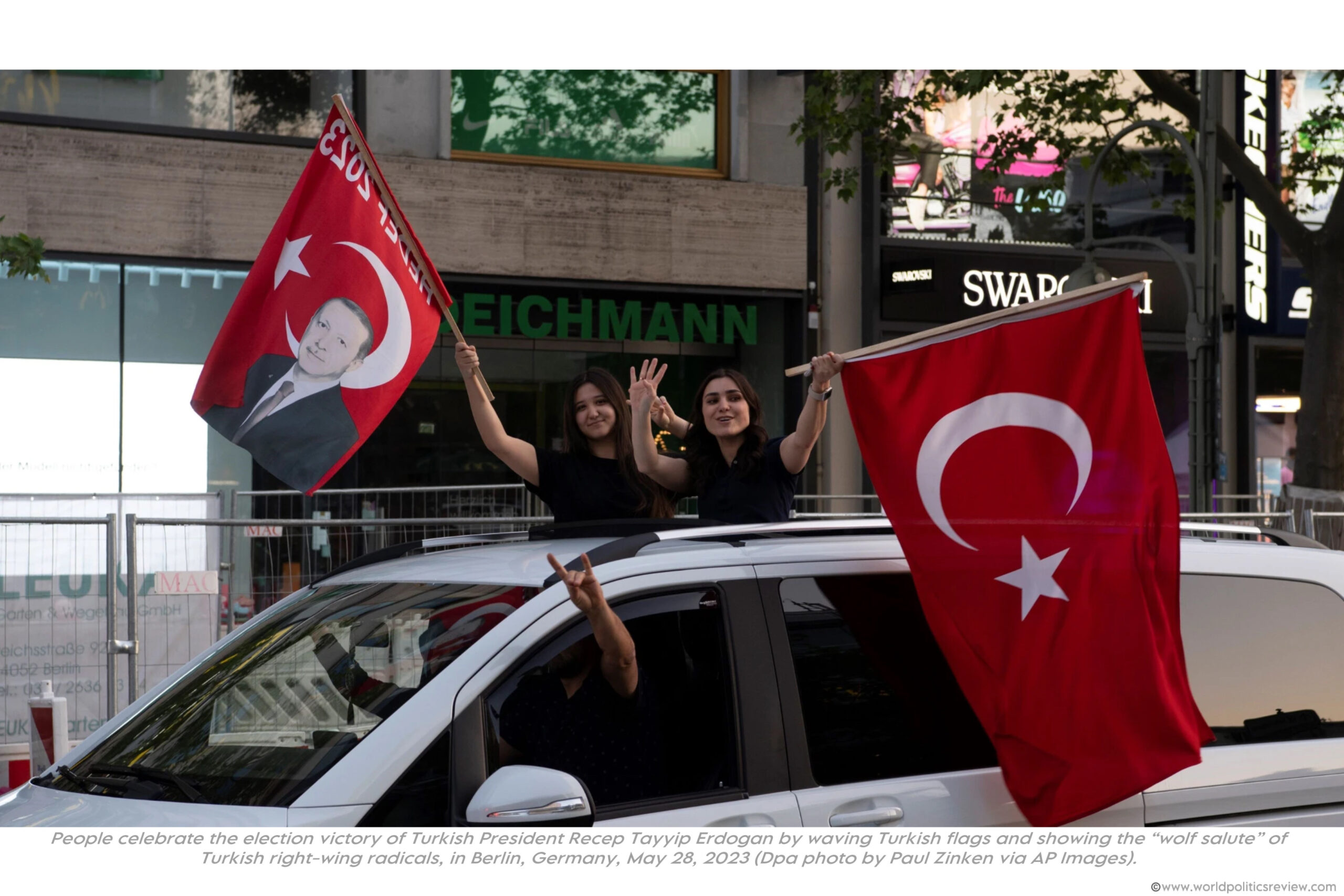The highly controversial nomination of publicist Ferda Ataman as federal anti-discrimination commissioner, has led to the postponing of the election. The Commissioner is the head of the Anti-Discrimination Agency (Antidiskriminierungsstelle), affiliated with the Federal Ministry for Family Affairs, Senior Citizens, Women and Youth . Up until this year, the Commmissioner was appointed by the Federal Minister for Family Affairs. However, since the amendment of the General Equal Treatment Act in April 2022, the Bundestag will now elect the Agency’s Commissioner. The nomination of Ferda Ataman for this election was contested by Germany’s Liberal Democrats (FDP), one of the three party’s in the current ‘traffic light’ coalition – referred to as such due to the affiliated colours of each of the three parties: the red Social Democrats (SPD), the Green Party and the yellow Liberal Democrats.
Born in Stuttgart and raised in Nuremberg, Ataman is the daughter of a Turkish immigrant and a German citizen with Turkish background. She studied political science with a focus on the Modern Middle East and migration at the Friedrich Alexander University of Erlangen-Nuremberg and the Otto Suhr Institute at the Freie Universität Berlin. between April 2018 and February 2020, Ataman wrote the Heimatkunde column for Spiegel Online. In the spring of 2019, she sparked a debate with the Twitter hashtag #vonhier (‘from here’) and her book ‘I’m from here. Stop asking!’ (Ich bin von hier. Hört auf zu fragen!) initiated a debate about integration and belonging.

Ataman had previously drawn negative attention when wondering in a column in the weekly magazine Spiegel why Germans without an immigrant background should feel attacked when being referred to as “potatoes” (Source). Ataman has defended the derogatory term applied to Germans, arguing that people with a migrant background are similarly subjected to qualifications that denote their origin (such as Turkish-German), and therefore white Germans should be able to accept certain terming referring to their background (Source).
Politicians, such as Stefan Müller of the Christian Social Union (CSU) – the Bavarian sister party of the conservative Christian Democrats (CDU) – have called the nomination problematic, referring to it as a “blatant error of judgement” (Source). Similarly, Ahmad Mansour, a German-Israeli commentator and psychologist -who has been involved in projects tackling the issue of radicalisation and anti-semitism in the Muslim communities- has called her potential election a “fatal miscasting” (Source). Mansour has accused Ataman of shutting down debate rather than encouraging a diversity of opinion. He stated: “Criticism of Islam is automatically labeled as right-wing and Islamophobic. Ferda Ataman refuses to name the origin of perpetrators, even if it is relevant to the crime. According to the glossary of her New Media Makers Association, not even terms such as “honor killing,” “Muslim anti-Semitism,” “political Islam,” and “integration” should be used, as they are racist in her view” (Source).
Mansour goes further and accuses Ataman of promoting an agenda that is not so much anti-discriminatory in and of itself as it is promoting the notion that only minorities can be discriminated against, establishing a de facto perpetrator-victim relationship: “Ferda Ataman’s world view is very simple: Germany is racist through and through. At least, that’s the feeling you get when you look at her articles, interviews and activities”. For Mansour, Ataman’s position is riddled with the preconceptions of identity politics: “old, white men are privileged by nature, live out their superiority, act and think in racist manners. Members of minorities, in the context of this absolutist scheme, can thus be little more than the victim of this racism and are perceived as a homogeneous victim group that should be protected from the evil white men” (Source).
Additional reasons for the opposition to Ataman’s nomination include polarising statements she made in the past. Jan Fleischhauer , Columnist of daily news outlet Die Welt, has pointed out that Ataman recently deleted as many as 10,000 of her 12,000 tweets. For Fleischhauer her opinions published during the past decade appear to be “too problematic to remain in public view”. He also denounced the considerable degree of incompatibility between Ataman’s persona and the commissioner’s role (Source). Marina Kraut, journalist of the Bavarian local news outlet Augsburger Allgemeine adopted a more conciliatory tone: “Over 12,000 tweets are gone. Perhaps a signal that she [Ataman] wants to be less strident. That she is ready for her office” (Source).
Ataman certainly has her share of support. Following the initial outcry following the public announcement of her nomination , more than 20 immigrant organizations and individuals spoke out in support of her in an open letter. Among them are writer Max Czollek and Meron Mendel, director of the Anne Frank Education Center in Frankfurt am Main. Ataman is praised in the letter as a “competent cast” who will help amend the General Equal Treatment Act (Allgemeine Gleichbehandlungsgesetz) – a law that the ‘traffic light’ coalition plans to reform (Source). The German Women’s Council also welcomed Ataman’s nomination, tweeting, “We offer our heartfelt congratulations!” (Source).
The election is now set for the next plenary session of the German Bundestag in early July.






